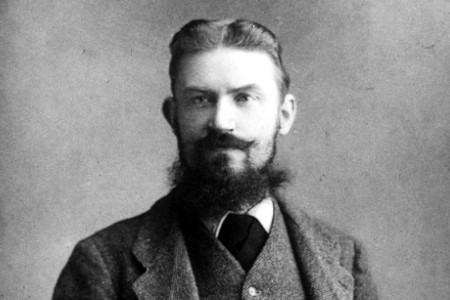George Bernard Shaw
George Bernard Shaw, born on July 26, 1856, and known by his insistence as Bernard Shaw, was an Irish playwright, critic, polemicist, and political activist. His profound influence on Western theatre, culture, and politics spanned from the 1880s until his death in 1950, leaving a lasting impact on subsequent generations. Shaw penned over sixty plays, including seminal works such as “Man and Superman” (1902), “Pygmalion” (1913), and “Saint Joan” (1923). Renowned for his ability to blend contemporary satire with historical allegory, Shaw emerged as the foremost dramatist of his era and was honored with the Nobel Prize in Literature in 1925.
Born in Dublin, Shaw relocated to London in 1876, embarking on a challenging journey to establish himself as a writer and novelist while pursuing a rigorous process of self-education. By the mid-1880s, he had earned respect as a theatre and music critic. Undergoing a political awakening, Shaw joined the gradualist Fabian Society, becoming its prominent pamphleteer. Although he had been writing plays for years, his breakthrough came in 1894 with the success of “Arms and the Man.” Influenced by Henrik Ibsen, Shaw aimed to inject new realism into English-language drama, utilizing his plays as a medium to disseminate his political, social, and religious ideas. Throughout the early twentieth century, he solidified his reputation with critical and popular triumphs like “Major Barbara,” “The Doctor’s Dilemma,” and “Caesar and Cleopatra.”
Shaw’s expressed views often stirred controversy; he championed eugenics and alphabet reform while opposing vaccination and organized religion. During the First World War, he criticized both sides, and though not a republican, he rebuked British policy on Ireland postwar. Despite these contentious stances, Shaw’s standing as a dramatist remained unscathed, and the inter-war years witnessed a series of ambitious plays with varying degrees of success. In 1938, he contributed the screenplay for the film adaptation of “Pygmalion,” earning an Academy Award.
Remaining politically engaged, Shaw shifted away from Fabian Society gradualism in the late 1920s, expressing admiration for both right and left-wing dictatorships, including Mussolini and Stalin. In the last decade of his life, he made fewer public statements but continued prolific writing until his death at the age of ninety-four in 1950, declining all state honors, including the Order of Merit in 1946.
Scholarly and critical opinions about Shaw’s works have varied since his death, but he consistently ranks among British dramatists as second only to Shakespeare. The term “Shavian” has become synonymous with Shaw’s ideas and his distinctive mode of expression, underscoring his enduring influence on generations of English-language playwrights.
The use of images or names herein does not necessarily imply any form of management or representation or that The Celebrity Group was wholly responsible for a specific endorsement. The Celebrity Group works in partnership with many agents & managers for the supply of celebrities not represented by ourselves.



